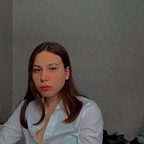Assumptions v. Curiosity
Every week in my Litigation Procedures class, we discuss certain real-life cases. This week we were discussing the civil case trial of Johnny Depp versus Amber Heard for defamation. As well, there was a mention of Will Smith slapping Chris Rock at the Oscars. One of my classmates, stated that he couldn’t believe that Smith did such a protective action for someone who publicly cheated on him and humiliated him. My response, that my professor openly agreed to, was “don’t assume that there’s nothing more to that. You don’t know these people, there most likely is something else that we don’t know about.”
My professor made a remark about an old saying that makes a play on the word ‘assume’- To “assume” is to make “an ass out of you and me”. This saying is just a simple play on words (ass-u-me). Abraham Maslow, the author of Toward a Psychology of Being, stated “I suppose it is tempting, if the only tool you have is a hammer, to treat everything as if it were a nail.” It is not only dangerous to make assumptions, but also careless. One incorrect assumption can lead to problems for yourself and pain for other.
“Assumptions are dangerous things to make, and like all dangerous things to make — bombs, for instance, or strawberry shortcake — if you make even the tiniest mistake you can find yourself in terrible trouble. Making assumptions simply means believing things are a certain way with little or no evidence that shows you are correct, and you can see at once how this can lead to terrible trouble. For instance, one morning you might wake up and make the assumption that your bed was in the same place that it always was, even though you would have no real evidence that this was so. But when you got out of your bed, you might discover that it had floated out to sea, and now you would be in terrible trouble all because of the incorrect assumption that you’d made. You can see that it is better not to make too many assumptions, particularly in the morning.” — Lemony Snicket, The Austere Academy.
Why do we make assumptions?
Frank Han, a neurobiology professor from Yale University states, “There are over one hundred billion cells in our brain and each of them makes over ten thousand connections with other brain cells. While the large number of possible combinations of cell connections allows for higher-ordered thinking, this is a big problem evolutionarily in terms of energy cost…Therefore, the brain has to encode things efficiently to save energy.” Our brain saves energy by using past experiences and prior knowledge to make assumptions. In fact, this can prove to be quite useful. For example, when the sky is cloudy, we can assume that a rainstorm is coming and can dress accordingly.
“Our ‘truth’ is not the only truth”
On the contrary, assumptions become problematic when we believe our way of thinking is the only correct approach. Our incorrect assumptions then lead to judgement which can have an array of negative outcomes. Therefore, to discourage these negative assumptions we must remember that our ‘truth’ is by far not the only truth. As well, we must become curious and attempt to find out more about every situation. After all, knowledge is power.
